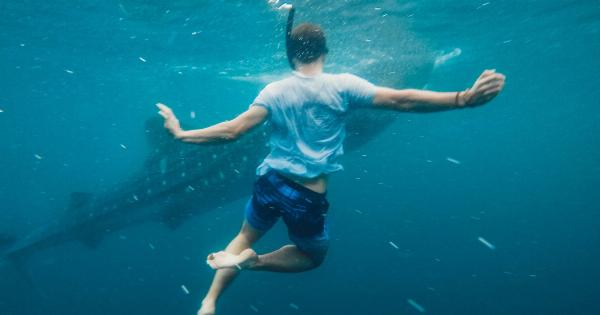Stroke is one of the leading causes of death and disability worldwide. According to the World Health Organization, almost 15 million people suffer from stroke each year, and around 5 million people die from it.
Several risk factors have been associated with stroke, including hypertension, smoking, alcohol consumption, and physical inactivity.
However, recent research has shown that the consumption of fish and seafood, in particular, can help reduce the risk of stroke.
Conversely, overfishing and the depletion of fish stocks can have adverse effects on human health, including increasing the incidence of stroke. In this article, we will explore the impacts of fisheries on stroke incidence and how sustainable fishing practices can help prevent stroke.
Fish and Fish Oil Consumption
Fish is an excellent source of omega-3 fatty acids, which have been shown to reduce the risk of stroke.
Several studies have indicated that individuals who consume fish and fish oil have a lower incidence of stroke compared to those who do not consume fish. For instance, a meta-analysis of 16 studies found that the consumption of fish or fish oil was associated with a 6% reduction in ischemic stroke risk.
The American Heart Association recommends the consumption of two servings of fish per week to help prevent stroke. Fish species rich in omega-3 fatty acids include salmon, mackerel, herring, sardines, and tuna.
Overfishing and Depletion of Fish Stocks
Overfishing and the depletion of fish stocks can have several impacts on human health. First, the reduction in fish populations can lead to an increase in the consumption of less healthy foods as populations turn to alternative protein sources.
Second, overfishing can lead to the accumulation of contaminants in fish, such as mercury and PCBs. These contaminants can have adverse effects on human health and increase the risk of stroke and other health problems.
Third, fishing practices such as trawling and dredging can have destructive impacts on marine ecosystems, contributing to the disruption of food chains and the decline of biodiversity.
These effects can have negative consequences for human health, including increasing the incidence of stroke, as healthy ocean ecosystems play a crucial role in regulating climate and water cycles, which, in turn, impact human health and wellbeing.
Sustainable Fishing Practices
Sustainable fishing practices can help prevent stroke and other health problems associated with overfishing and the depletion of fish stocks.
Sustainable fishing practices maintain fish stocks at healthy levels, minimize bycatch, and help protect marine ecosystems. Several fishing methods are considered sustainable, including line fishing, pole-and-line fishing, and selective fishing gear such as hooks, traps, and pots.
Consumers can also play a role in promoting sustainable fishing practices by learning about seafood sustainability and choosing sustainable seafood options.
Several certification programs, such as the Marine Stewardship Council and the Aquaculture Stewardship Council, allow consumers to identify sustainably sourced seafood products.
Policy Solutions
Governments can also play a role in promoting sustainable fishing practices and preventing stroke.
For instance, governments can enforce fishing quotas, close certain fishing areas during certain seasons, establish marine protected areas, and regulate fishing gear and techniques. Several countries have already implemented such policies, resulting in the recovery of fish populations and the restoration of marine ecosystems.
In addition, governments can promote public health by ensuring access to healthy seafood options, supporting education campaigns on the benefits of fish consumption, and encouraging sustainable fishing practices through subsidies and economic incentives.
Conclusion
Fisheries can have both positive and negative impacts on human health and stroke incidence.
The consumption of fish and fish oil can help reduce the risk of stroke, while overfishing and the depletion of fish stocks can have adverse effects on human health. Sustainable fishing practices and policy solutions can help prevent stroke and promote healthy marine ecosystems, supporting public health and sustainable development.





























